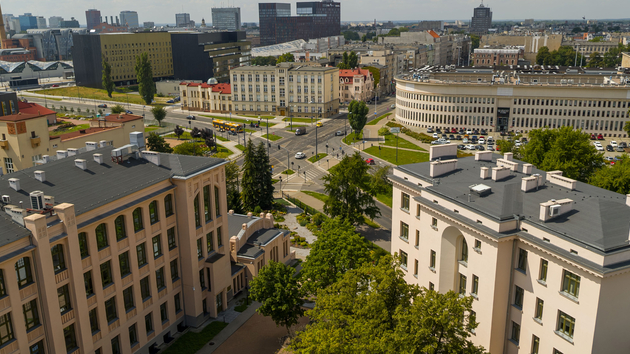A Renewed Focus on Maximising Societal Impact
With the new phase, the Alliance will also be renamed from the European University of Post-Industrial Cities to the European University of Cities in Post-Industrial Transition. This underscores UNIC’s renewed objectives in the coming years, i.e. unlocking models of inter-institutional learning, teaching, and research that are profoundly engaged with diverse post-industrial urban ecosystems. UNIC’s initiatives benefit nearly 20 million citizens, students, staff, and researchers in post-industrial cities across Europe. The next phase of the Alliance is to further boost development of knowledge and co-creation through cooperation, innovation and inclusion for societal impact.
Currently, thanks to the fact that the University of Lodz belongs to the UNIC Alliance, each representative of our academic community (a student, a doctoral student, an academic teacher or an administrative employee) can learn in a convenient way, free of charge one of the 10 languages that we use in UNIC: English German, Spanish, French, Turkish, Dutch, Croatian, Irish, Finnish or Basque. The UNIC language modules contain information on the 10 UNIC languages as well as the universities, cities and culture of the partner universities. Soon, Polish will also appear on the platform, in a counteroffer for our partners.
As part of the virtual mobility ensured by being a member of the UNIC Alliance, students from the University of Lodz can now participate in the courses offered by other universities associated in the UNIC Alliance in the winter semester 2023/24. Registration for the courses is already open.
"UNIC is committed to building the European university of the future, and we are delighted to be supported in our next phase by the European Commission,” – said Prof. Dr Peter Scholten, UNIC's Alliance coordinator. "Our impact is in educating our students as change agents of the future, and we will continue to set a positive model for European cities on how to bring together learning, engaged research and innovation to create societal impact."
Paving the Way to Universities of the Future
In its next phase, the Alliance will roll out new programmes and expand existing offerings that reflect its renewed mission:
- The UNIC Msc in Redesigning the Post-Industrial City will accept its first cohort in autumn 2023. This new programme strives to educate the next generation of urban specialists with the 21st century skills and knowledge needed to address the challenges and opportunities of cities in transition and superdiverse societies.
- The UNIC Centre for City Futures, which is a new “one-stop-shop” infrastructure built to enable our universities engage with cities, communities, and stakeholders for transformative innovation.
- As education changes, technology must keep up with the times. UNIC’s innovative Hybrid Campus will set the foundations for state-of-the-art mutual exchanges, opening up Blended Intensive Programmes, virtual courses, and joint degrees to an even wider community of students, researchers and citizens.
- In order to facilitate a broader whole-university approach, UNIC will introduce Thematic Lines – new collaborative structures that will act like UNIC ‘faculties’ focusing around specific areas of post-industrial transition (such as health and wellbeing, sustainability, resilience and digitalisation, security, inclusion, entrepreneurship and arts), providing content and community for UNIC’s innovation in education, engagement and cooperation capacities.
Source: Communications and PR Centre, University of Lodz

